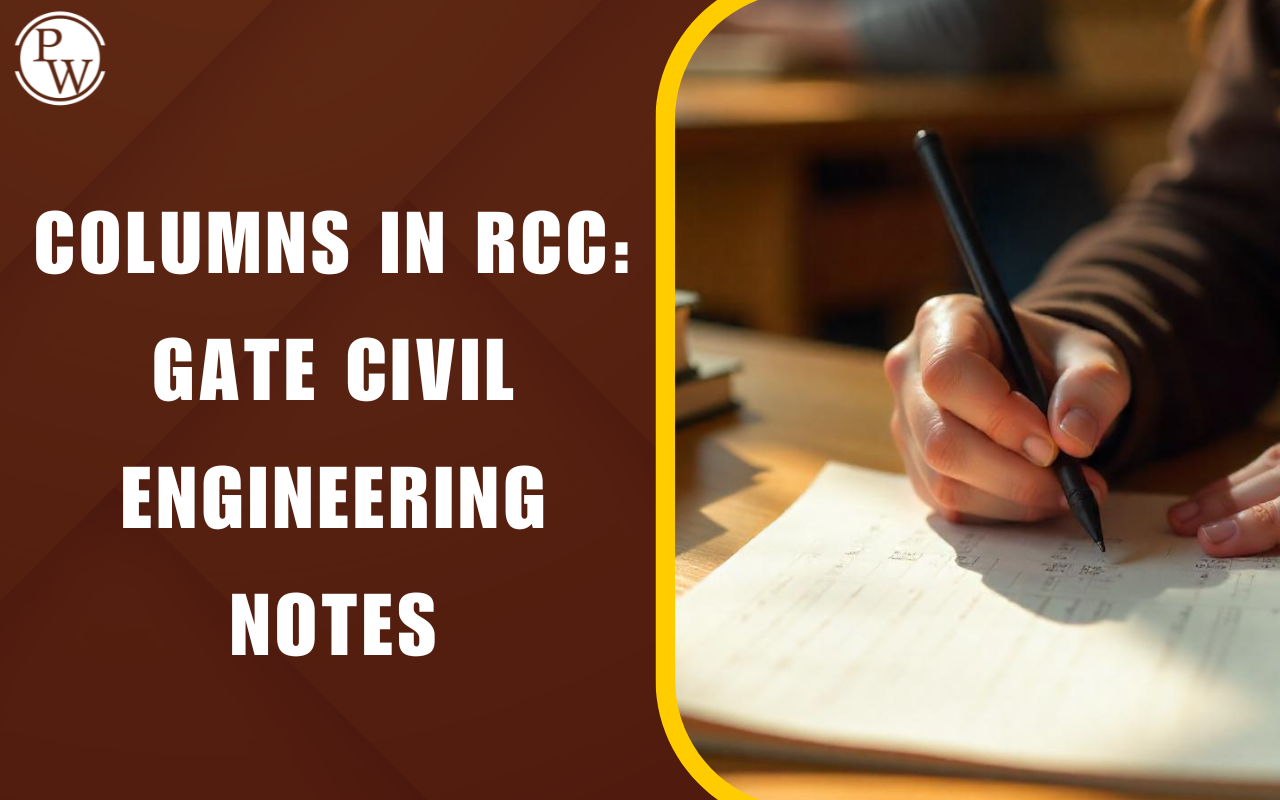
GATE Physics Syllabus 2026: Physics is a crucial subject in the Graduate Aptitude Test in Engineering examination. Mastering this section requires strategic planning, effective approach and proper guidance. In 2026, IIT Guwahati is going to administer the GATE examination for 30 various specializations including Physics.
Candidates who are planning to take the GATE 2026 for Physics paper must kick-start their preparation by reviewing the entire syllabus. An in-depth understanding of the GATE Syllabus for Physics is essential to obtain a desired score. The GATE Physics Syllabus 2026 covers a weightage of 85% marks from core topics while 15% from general aptitude.
Below, we have outlined the detailed syllabus for the GATE Physics including core topics and sub-topics to aid the preparation of aspirants.
GATE Physics Syllabus 2026
Physics is a core subject that carries the maximum weightage of around 85%, whereas general aptitude will have the remaining 15%. Learning the GATE Physics Syllabus 2026 provides aspirants with a clear picture of important topics, which eventually aids in scoring well.
Furthermore, the GATE physics syllabus focuses on assessing aspirants basic concepts related to physics and their ability to implement these concepts in order to solve problems. Additionally, the questions arising in the GATE 2026 exam will be solely based on the GATE physics syllabus. Let's have a look at the nine sections covering the complete GATE syllabus 2026 for Physics.
| GATE Physics Syllabus 2026 Sections | |
| Section | Name of the Subject |
| 1 | Mathematical Physics |
| 2 | Classical Mechanics |
| 3 | Electromagnetic Theory |
| 4 | Quantum Mechanics |
| 5 | Thermodynamics and Statistical Physics |
| 6 | Atomic and Molecular Physics |
| 7 | Solid State Physics |
| 8 | Electronics |
| 9 | Nuclear and Particle Physics |
GATE PH Syllabus for Mathematical Physics
This section of the GATE PH Syllabus for Mathematical Physics includes topics such as Vector Calculus, Linear vector Space, and Basic Tensor Ideas, among others. Some of the important topics are listed below for aspirants reference.
| GATE PH Syllabus 2026 for Mathematical Physics | |
| Topics | Sub-topics |
| Basic Tensor Ideas |
|
| Cauchy's Theorem |
|
| Vector Calculus |
|
| Linear differential equations |
|
GATE PH Syllabus for Classical Mechanics
The GATE Physics Syllabus 2026 for Classical Mechanics focuses on classical mechanics' key concepts and theories within the area of physics. Find out about the important Classical Mechanics topics outlined below.
| GATE PH Classical Mechanics Syllabus |
| Lagrangian Formulation |
|
| The Special Relativity Theory |
|
GATE PH Syllabus for Electromagnetic Theory
The GATE Physics Syllabus 2026 for Electromagnetic Theory gives a thorough understanding of the concepts that manage the behavior of electric and magnetic fields, as well as their interactions and applications. All the important topics from this section are provided below.
| GATE Physics Syllabus 2026 for Electromagnetic Theory |
| Electromagnetic Theory |
|
GATE PH Syllabus for Quantum Mechanics
The GATE Physics Syllabus 2026 for Quantum Mechanics covers the fundamental principles and concepts of quantum physics. It includes various topics related to angular momentum, Born approximation, etc. The Quantum Mechanics syllabus includes the following key topics:
| GATE Physics Syllabus 2026 for Quantum Mechanics |
| Quantum Mechanics |
|
GATE PH Syllabus for Thermodynamics and Statistical Physics
The GATE Physics syllabus for Thermodynamics and Statistical Physics section highlights topics such as Bose-Einstein condensation, phase equilibria, and so forth. Check out the primary topics stated below for more information on the same.
| GATE Physics Syllabus 2026 |
| Thermodynamics and Statistical Physics |
|
GATE PH Syllabus for Atomic and Molecular Physics
The GATE Physics Syllabus for Atomic and Molecular Physics aims to cover the essential principles and ideas of atomic and molecular physics. This syllabus provides an in-depth framework for understanding the behavior of atoms and molecules. Some of the vital topics are mentioned below.
| GATE Physics Syllabus 2026 |
| Atomic and Molecular Physics |
|
GATE PH Syllabus for Solid State Physics
The Solid State Physics section of the GATE Physics Syllabus provides an in-depth framework for studying the concepts and phenomena connected to the behavior of solid-state materials. It covers an array of topics important in solid-state physics, such as crystal structure, lattice vibrations, electronic band theory, and more, as outlined below.
| GATE Physics Syllabus 2026 |
| Solid State Physics |
|
GATE PH Syllabus for Electronics
Aspirants will gain a strong foundation in electronic engineering fundamentals by studying the GATE Physics Syllabus 2026 for Electronics, which will help them evaluate, design, and troubleshoot electronic systems and circuits. Refer to the table below to learn about the important topics to cover in the electronics section.
| GATE Physics Syllabus 2026 |
| Electronics |
|
GATE PH Syllabus for Nuclear and Particle Physics
The GATE Physics syllabus for the Nuclear and Particle Physics section contains topics like electromagnetic transitions, Rutherford scattering, and so on, as highlighted below.
| GATE Physics Syllabus 2026 |
| Nuclear and Particle Physics |
|
GATE Physics Syllabus PDF
Downloading the GATE Physics Syllabus PDF is an important step towards developing a comprehensive and well-structured study plan. Moreover, the GATE Physics Syllabus PDF serves as a vital resource that explains the entire syllabus for the GATE exam, providing aspirants with a clear understanding of the topics and subtopics they need to cover. Download the GATE Physics Syllabus 2026 PDF from the link given below.
Download GATE Physics Syllabus PDF
GATE Physics Syllabus 2026 - Subject wise Weightage
As per the GATE Physics subject-wise weightage, aspirants can expect the maximum number of questions from their core physics subject, which will carry around 85 percent of the overall question paper, making it the most significant subject to cover. Check out the complete details below:
| GATE Physics Syllabus 2026 Weightage | ||
| Subject | Total Number of Questions | Weightage of Marks |
| General Aptitude (GA) | 10 | 15 percent |
| Core Physics Topics | 55 | 85 percent |
| Total | 65 | 100 |
Elevate your GATE readiness with Physics Wallah’s GATE Online Courses. PW GATE Online Coaching offers comprehensive live sessions tailored to the syllabus, invaluable study materials, practice tests, and much more.
GATE Physics Syllabus 2026 FAQs
Q. What is the GATE Physics Syllabus 2026?
Q. Where can I find GATE Physics Syllabus?
Q. How to complete the GATE Physics Syllabus 2026 on time?
Q. What are the GATE Physics Syllabus's important topics?
Q. How many questions may arise from the core GATE Physics sections?










